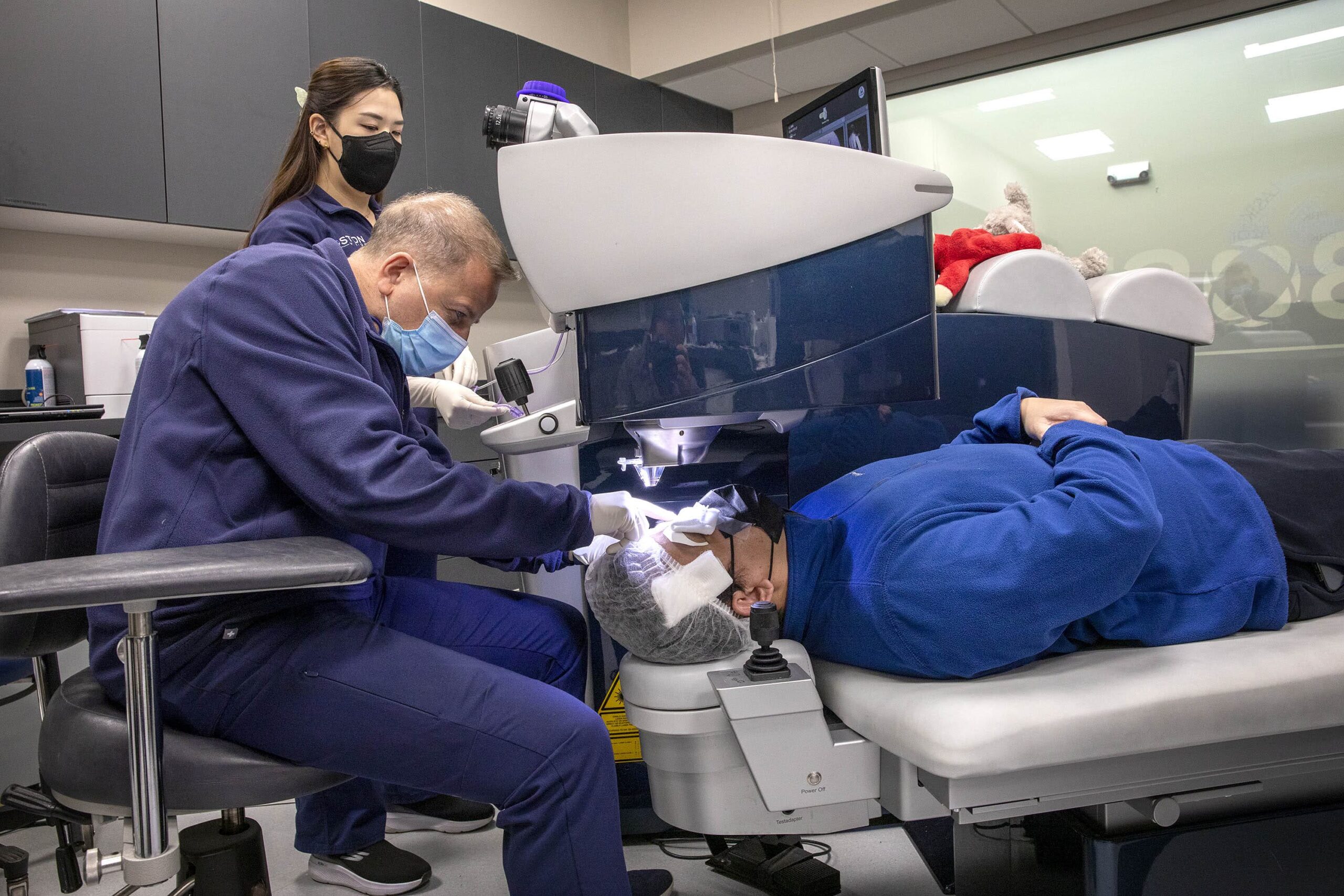The refractive errors myopia (nearsightedness), hyperopia (farsightedness), and astigmatism can all be corrected by LASIK eye surgery (blurry vision at all distances). To put it simply, difficulties with how the eye refracts light are the most common cause of visual impairment.
However, the cornea is sculpted during surgery LASIK to redirect light in the proper direction, resulting in sharp vision.
It’s common to feel apprehensive about and curious about having eye surgery with LASIK if it’s something you’re thinking about having done. Candidates for LASIK frequently enquire about the durability of the procedure’s effects.
Below, we will talk about the permanence of LASIK eye surgery and why its longevity is one of the reasons it is such a good investment.

Will the Eye Surgery with LASIK Heal Permanently?
In a nutshell, sure. The corneal shape is altered by LASIK eye surgery and does not return to normal over time. After their operation, many of our patients report having clear vision for decades.
Your eyesight may, however, evolve in the future. While eye surgery with LASIK can permanently reshape the cornea to treat common vision disorders, surgery cannot prevent age-related eye conditions like presbyopia or cataracts.
The good news is that our LASIK eye team in Persona Eyes provides several other vision correction methods than traditional LASIK eye surgery to assist cure age-related eye issues. The effects of presbyopia typically become apparent in one’s early to mid-40s, and we treat this condition with both laser and lens PresbyVision.
If your eyesight unexpectedly shifts after a LASIK eye surgery, you may be entitled for a free correction. Personal Eyes 20/20 vision pledge covers refractive surgery and other vision correction procedures at no cost to those who qualify. We can then guarantee that your eyesight will remain unimpaired throughout your entire life.
It’s worth noting that requests for improvements are quite rare. For instance, a 2017 study indicated that only 10% of eye surgery with LASIK patients need follow-up treatment, and that this usually occurs years after the initial procedure.

Why LASIK Patients Are Happy with Their Results Forever
Our history of success and safety at Personal Eyes speaks for itself. Clear vision is achieved for the vast majority of our patients, and it frequently remains stable for the rest of their lives after their surgery. As a direct result, we now have a record-breaking level of patient satisfaction.
In a research published in the Journal of Cataract & Refractive Surgery, the American Refractive Surgery Council reported that greater than 96% of patients were satisfied with their visual results following their eye surgery with LASIK, the greatest rate reported for any elective medical surgery. Here at Personal Eyes, however, 99 percent of our former patients are happy with the results.
The fact that LASIK eye surgery can reduce costs over time is an added bonus. Frames, prescription sunglasses, and contact lenses will all be unnecessary expenses after a LASIK surgery. Learn how much money you could save with laser eye surgery by using our handy calculator.
One should remember that LASIK eye surgery has a proven track record of success and patient happiness, and that its results are permanent. It’s inconvenient to wear glasses or contact lenses, but eye surgery with LASIK eliminates that necessity. Learn more about the independence that a surgical treatment for vision correction can give you.

Three Ways to Speed Up Your Healing Period
If you’re having trouble seeing clearly, LASIK surgery is currently your best option. Thanks to eye surgery using LASIK, many people have been able to ditch their glasses and contact lenses for good and enjoy clear vision without the hassle.
The success rate of the procedure and the little amount of time needed to achieve full vision correction are both common measures of its efficacy. However, it may take some time to fully recover from the surgery’s effects.
Following eye surgery with LASIK, full recovery of your eyes usually takes place over the course of three months. Yet, in many instances, a prosperous recovery can take up to six months. But no matter how dire the situation, there is always a workable answer.
Here are three suggestions to help you see clearly again quickly after LASIK surgery. If you want to shorten your healing period and, by extension, eliminate the related uncomfortable symptoms, incorporating these recommendations into your lifestyle may be a convincing option.
Do Not Blink or Rub Your Eyes
When the eyes are rubbed together, the corneal flap can be severely damaged. Consequently, it could necessitate further ocular surgery to realign the flap. After LASIK surgery, your eyes may feel irritated and scratchy, as if there were a foreign object lodged there, but you shouldn’t bother touching them. However unpleasant it may be, restraint is necessary for rapid and complete recovery.
Take Breaks from Staring at Your Screen
A common side effect of working on a computer all day is dry eyes, as you may being constantly focused on the screen for lengthy periods of time. This might aggravate an itchy, irritating condition.
In light of this, it is imperative that you give your eyes the necessary rest that they require on a consistent basis. Artificial tears are a great way to keep your eyes hydrated and healthy during the day.
Lastly
If you are having any question or inquiry about how to have a correct vision, Laser eye surgery, Corneal tissue problems, Lasik surgery, laser beam in healing process, excimer laser usage, refractive eye surgery, laser treatment, laser suite, contact sports, the surgical procedure for refractive surgery or Lasik laser eye surgery – you should get in touch with us via our Personal Eyes website to book your free assessment today.
Personal Eyes is Right Here If You Need Help
Truth be told, there are no right or wrong answers to this procedure. Consider the factors outlined in this blog post, weigh the pros and cons, and most importantly, consult with an eye surgeon or consult with us at Personal Eyes before making the final decision.






